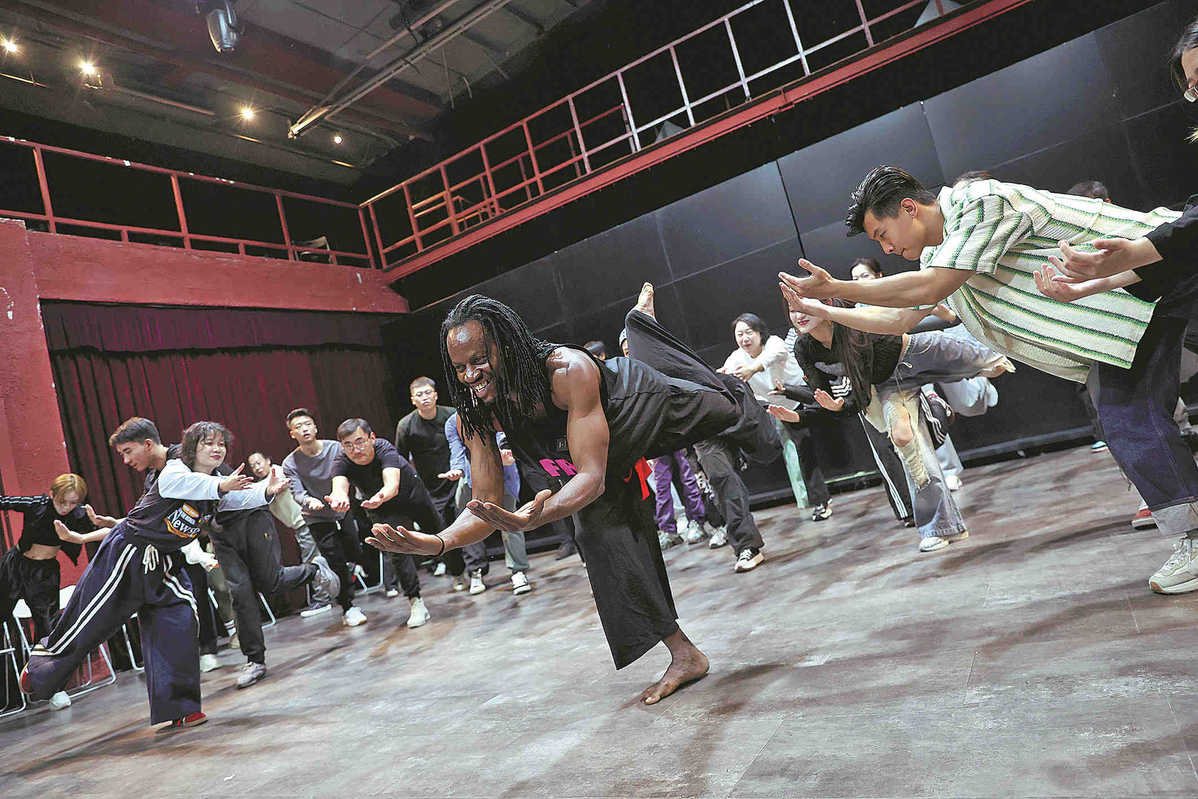
Cameroonian choreographer Abbe Simon gives a dance class to the students as part of the theater training program. Provided to China Daily
It's not every day that Yu Jinhao, a 43-year-old corporate leader who lives and works in Tianjin, finds himself standing in front of a crowd of strangers, crouching low, arms dangling by his side, and hopping across a stage while scratching his head and emitting monkey grunts.
Before the laughter subsides, he has transitioned again, this time into a crocodile lying flat on the ground and snapping imaginary jaws with exaggerated ferocity. His voice deepens as he growls, sending a ripple of surprise through the audience.
Finally, he curls up and wiggles like an earthworm, his body undulating awkwardly.
He straightens up, his face flushed, smooths out the crumples in his pants, and says with a shy grin: "I released my inner animals and now it is your turn."
Yu was taking part in the first class of a theater training program created by singer-songwriter Xiao Ke. The program is free, and open to amateurs under the age of 45.
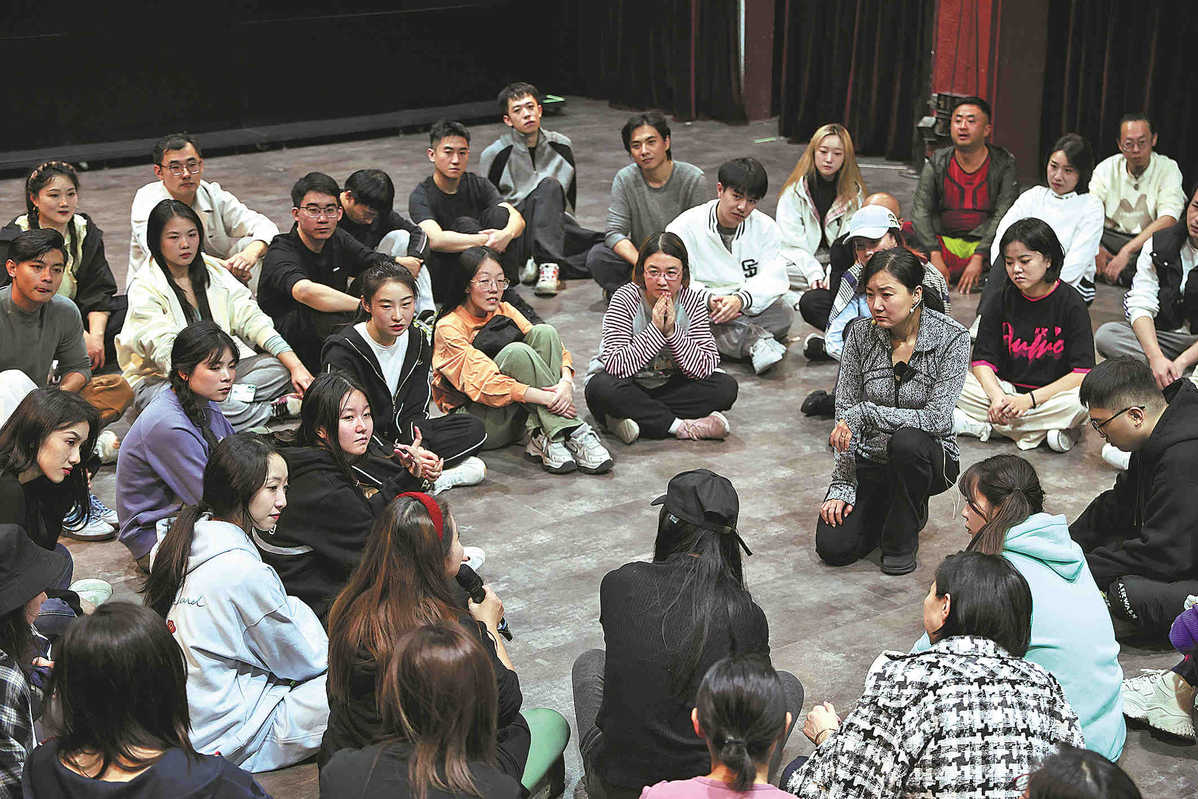
Aspiring amateur actors of various ages and occupations gather for the theater training program at the Xiao Ke Theater located in Beijing's 798 Art Zone. Provided to China Daily
Opportunity knocks
In early November, Xiao Ke, whose real name is Ke Zhaolei, announced the theater training program at the Xiao Ke Theater in Beijing's 798 Art Zone.
From hundreds of applicants nationwide, 100 students were selected to take part in five weeks of training, with eliminations along the way. The 15 eventual winners will get the opportunity to act in 15 performances of Xiao Ke's popular musical production, Wenwende Xingfu (Stable Happiness), starting on Dec 14.
Xiao Ke said the quota of 100 spots was quickly filled, which surprised him. While the theatrical world is seen as the domain of the young and passionate, the applicants varied from middle-aged aspirants, to full-time mothers, professionals and everyday workers, who decided to take the "plunge into the unknown world of acting", he said.
"For many, the thought of performing onstage may seem a distant fantasy — an ambition postponed due to life's practicalities. However, I wanted to give this a try, and provide an opportunity for people, especially ordinary people, who may otherwise never stand and perform on a stage," Xiao Ke said.
Yu said for most novices the thought of performing in front of people can be daunting. "Yet, I was willing to step out of my comfort zone and give it a try," he said, adding his wife encouraged him to try out for the program after he saw it promoted on social media.
He leads a performance company and has spent most of his working life in meeting rooms and at negotiating tables.
Yu applied for the Beijing Film Academy when he was 18, but failed the final exam.
However, he still harbored a desire to perform, despite the additional obligations of being a husband, father and son.
"When my wife, who is a theater director, encouraged me to attend the theater class, I hesitated. After all, I wasn't used to being vulnerable or, frankly, looking foolish in front of others," he said.
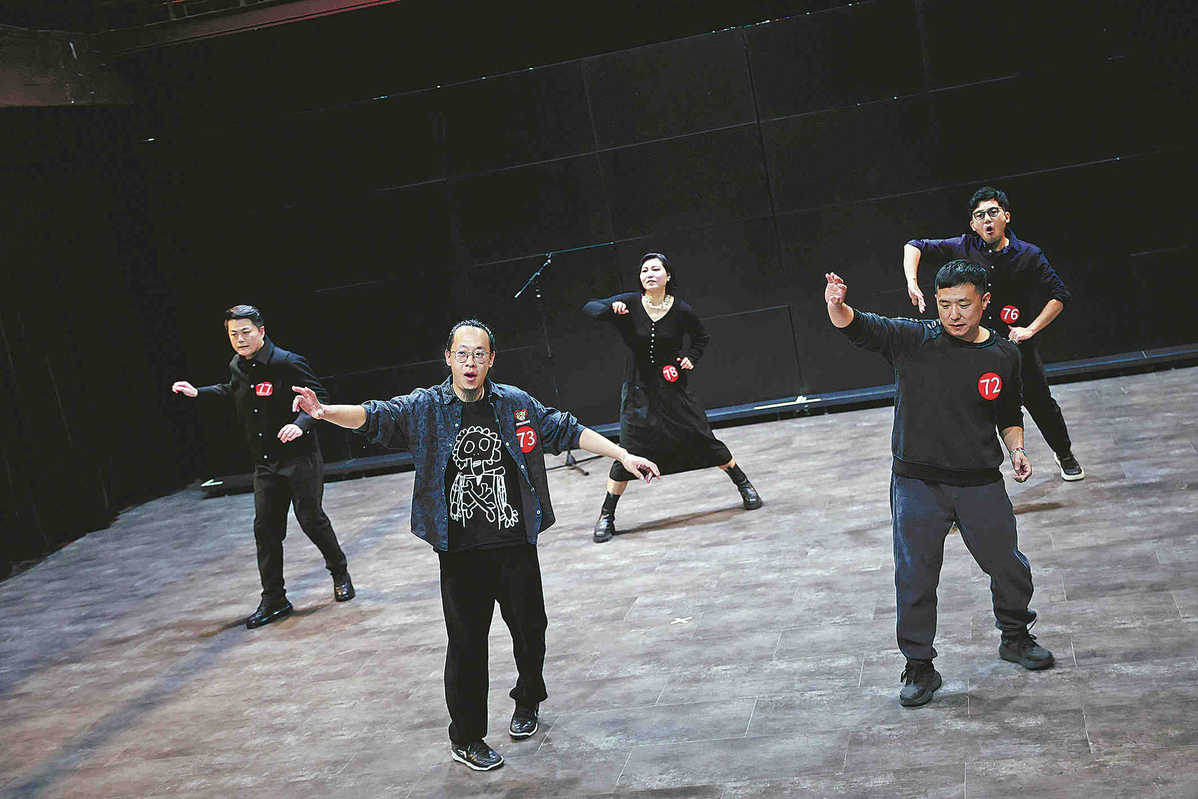
Aspiring amateur actors of various ages and occupations gather for the theater training program at the Xiao Ke Theater located in Beijing's 798 Art Zone. Provided to China Daily
Overcoming fears
The opening class began with a warm-up intended to take the students out of their comfort zones. The animal exercise, designed to loosen the body and build trust within the group, made Yu extremely nervous.
At first, Yu, who regularly takes the train from Tianjin to Beijing to take part in the program, stood frozen.
"I was immediately confronted with the absurdity of the task — especially in front of strangers. As the other people took turns imitating animals, I was forced to confront my fears of looking ridiculous, being judged, and I had to step away from my usual professional personas," Yu said, adding he is used to being the one in control.
Another student, Liu Jia, a 43-year-old from Qinhuangdao, Hebei province, said he found some of the tasks, such as public speaking and imitating animals, surprisingly challenging.
"I didn't know how to let go. I felt exposed, like I was being asked to do something I wasn't prepared for," said Liu, who works for a water company by day, and performs as a pub singer in the evenings. "I always stood in the corner of the classroom and felt reluctant about acting."
Despite feeling comfortable performing music, Liu, an admirer of Xiao Ke, said he had never acted in a serious theater production. When he applied, he believed the training would be a great opportunity to work with one of his idols, boost his confidence, and enhance his performance skills.
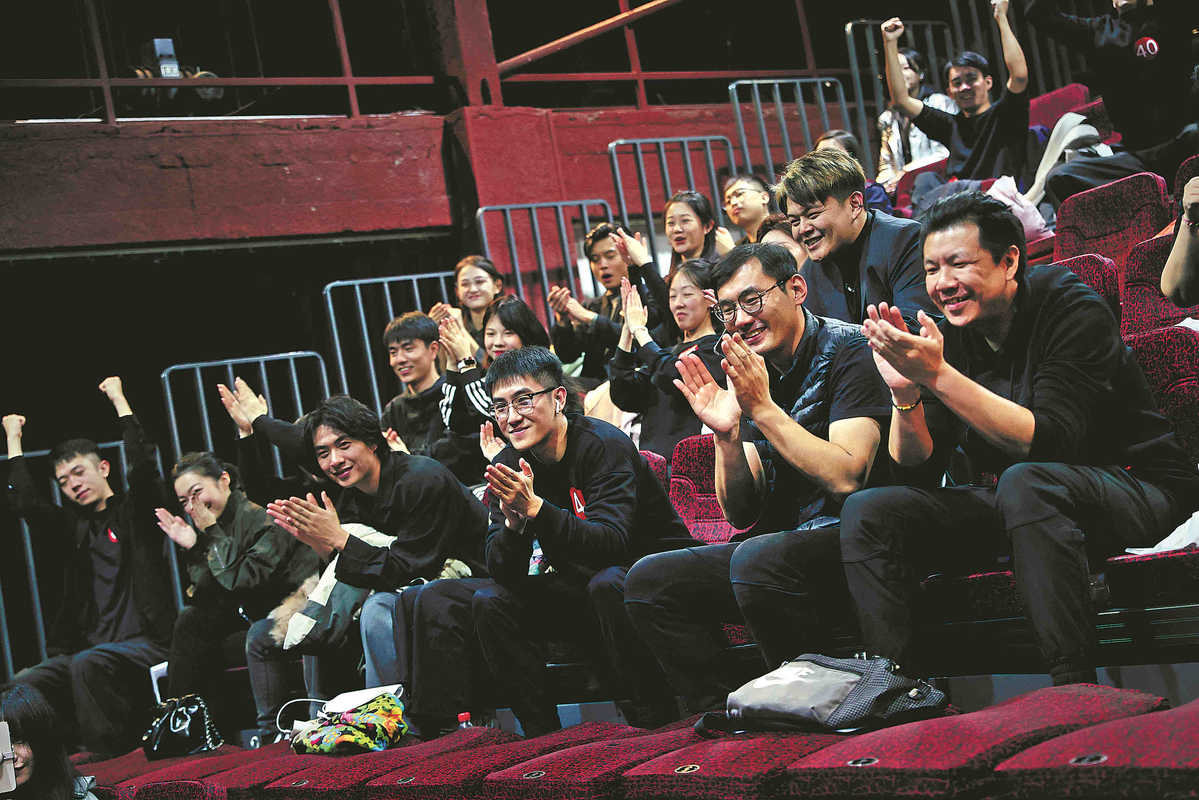
Students of Xiao Ke's theater training program have their first lesson in early November in Beijing. Provided to China Daily
"Of course, singing is not difficult for me," he said. "But the teachers also get us to dance and act, which are beyond my reach. I even considered quitting, but as a father I want to set a good example for my kid, to be brave and persist."
Fu Peipei, a 41-year-old business owner based in Beijing who loves dancing and acting, was inspired by her family to apply for the program. Her husband is a university teacher who runs a student theater club, and her daughter also loves singing and dancing.
"Their involvement in the arts inspired me to try it myself," she said.
Fu said what has impressed her the most so far, was when Xiao Ke elaborated on why he created the roles for the production, and how he came to write each song.
"I cried. I had never experienced listening to the creator telling me how a musical production was born. I felt connected to the story and the roles. It was very healing," she recalled.
Fu said theater has given her a much-needed emotional outlet.
"I've spent so much time focusing on others — my family and my colleagues — that I forgot how important it is to give space for my own emotions," she said. "This experience has helped me reconnect with myself. I have overcome lots of challenges, along with the new friends I made in the program."
Fu said she is prepared to be eliminated as each round progresses. "Whether or not I can make it to the last round, I am already successful," she said.
With the final 10 winners to be determined soon, Yu, Liu, and Fu are all still in contention.
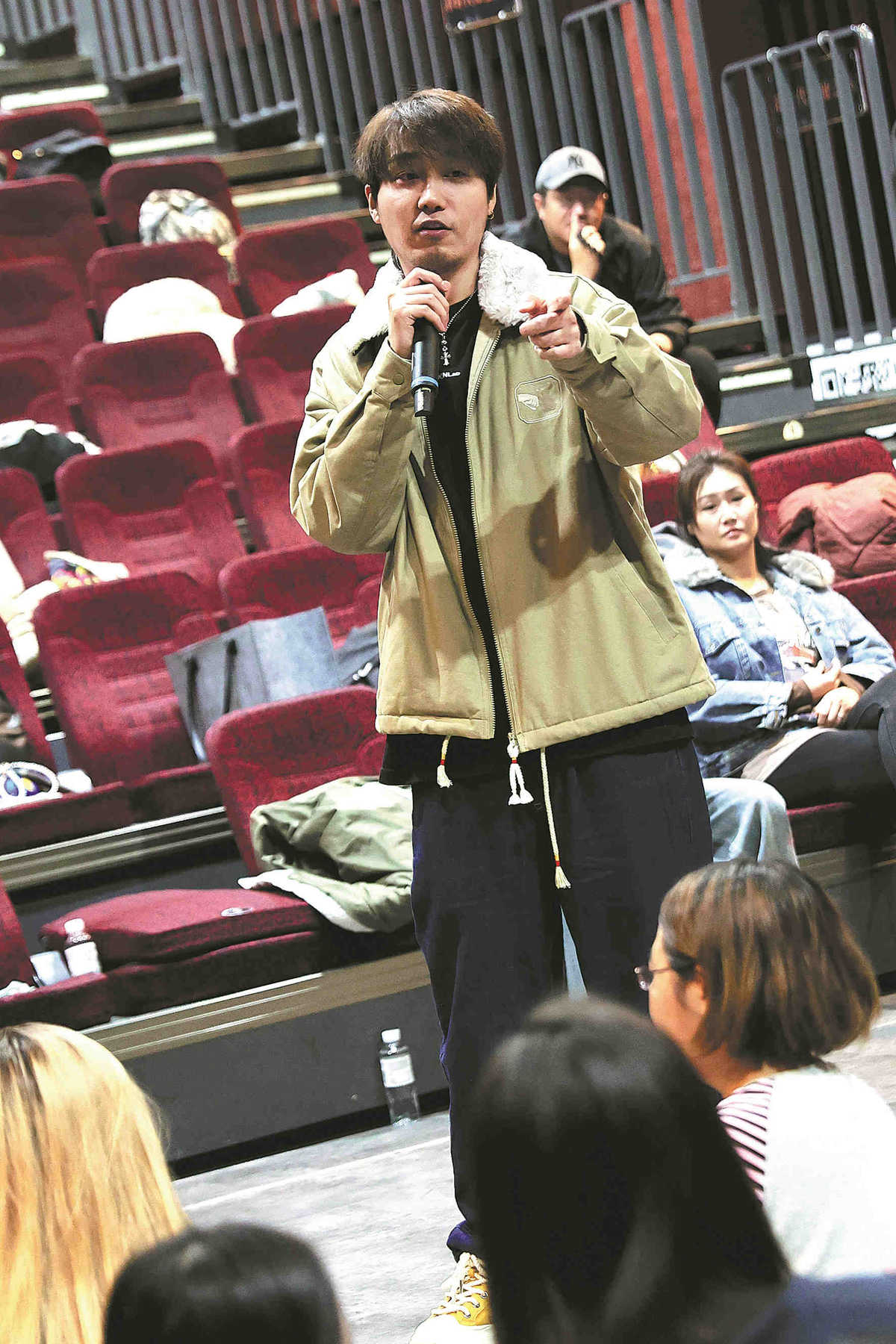
Executive director Yue Shihan at the theater training program in Beijing. Provided to China Daily
Independent streak
Xiao Ke's idea of launching the theater training program comes from his passion for theater.
Born in Beijing, Xiao Ke was trained in classical music. He started learning the piano at 12, and formed his first band at age 19. He has worked in the music business ever since.
The singer-songwriter's eponymous album was released in 1996, and he is best known for folk and pop songs. He has also written songs for pop stars, including Because of Love for pop diva Faye Wong and Hong Kong singer Eason Chan. One of his most famous songs is Beijing Welcomes You, which was played to mark the 100-day countdown to the 2008 Beijing Olympics.
His involvement in theater began in 2007 when he was invited to write the score and sing in the musical drama, How Much Love Can Be Messed Up. With encouragement from the director, Xiao Ke ended up playing the lead role of Lin Yibai, a heartbroken 30-something bachelor.
The drama turned out to be a huge success, and also made Xiao Ke a big fan of theater. The experience gave him a new enthusiasm for music and the performing arts.
Twelve years ago, he launched Xiao Ke Theater, which has staged more than 10 Chinese musicals, all written by him.
Xiao Ke said he has been lucky enough to have many popular songs. But in some instances, such as commercial projects and collaborative projects, he has had to compromise his artistic vision.
"I've always loved theater, and musicals in particular. With the money I gained from my music career I launched the theater, which I wanted it to be a place for my independent songwriting," he said. "It's pure love and no compromising."
Xiao Ke can still remember the awkwardness and exhilaration of his first acting experience. He was asked by the director to do some intimate interactions with an actress whom he had met for the first time.
"I stood on the stage, unsure of where to place my hands as I prepared to perform an intimate scene with the actress beside me," he recalled.
"My movements were rigid and clumsy. My eyes darted away from hers, avoiding eye contact."
He said it took him nine hours to perfect what the director wanted, and the learning experience was exciting, as if he had become an entirely new person.
"I opened up myself and embraced the moments of being onstage as an actor. I want those 100 people in the theater training program to feel the same way, whether they become the final winners or not," Xiao Ke said.
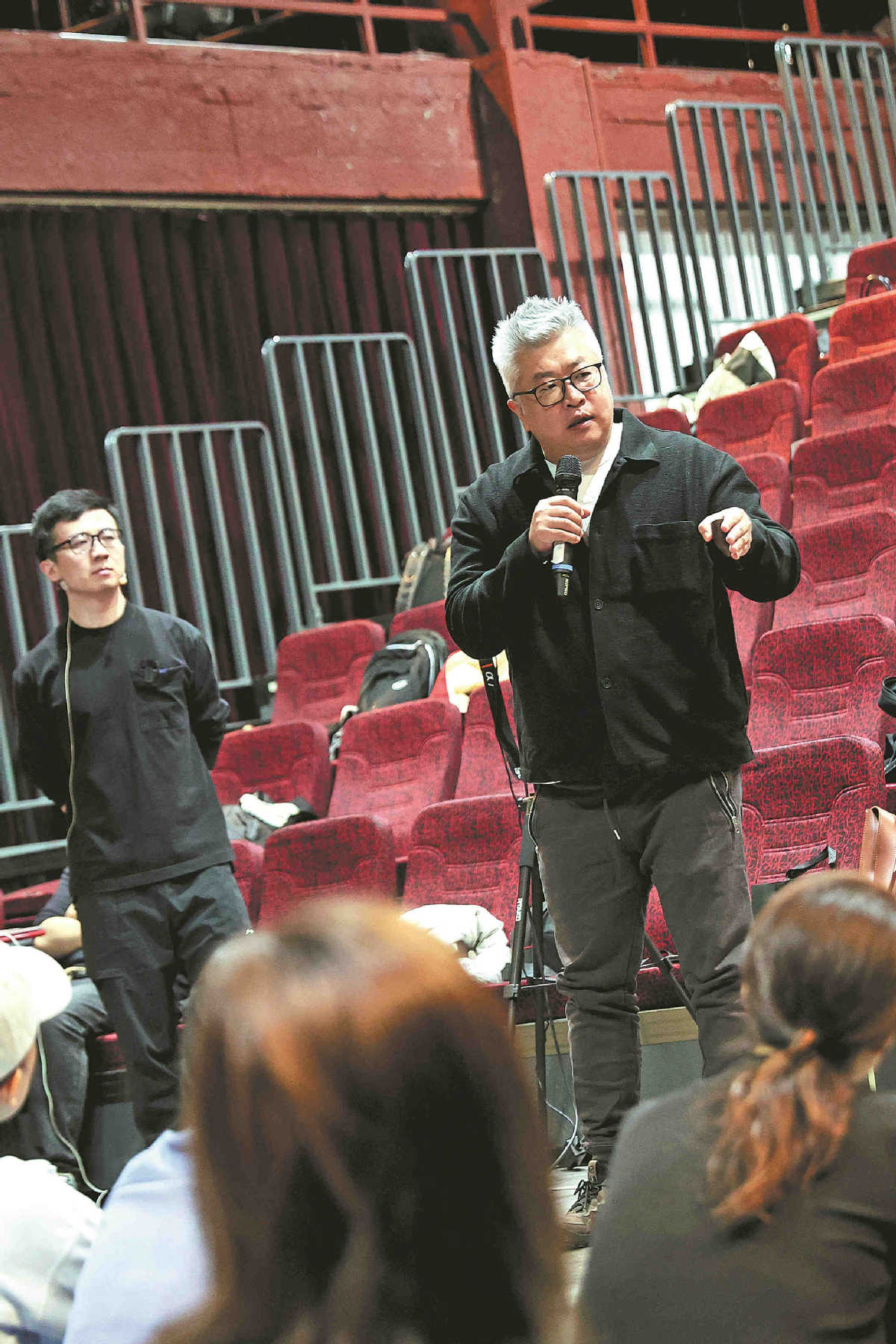
Singer-songwriter Xiao Ke at the theater training program in Beijing. Provided to China Daily
Defining roles
Sun Jiao, the producer at Xiao Ke Theater, said launching the acting training program was a bold idea to offer more people the opportunity to perform in public.
"Originally, we planned to eliminate about 30 people after the first week of training, but we changed that idea," Sun said.
"We had all 100 people stay in the program for a longer period because we were touched by their passion for theater, though the first week was very tough and challenging," recalled Sun.
Veteran actress and scriptwriter Zhao Manyu is one of the acting teachers. She has coached professional thespians before, but until now has never taught amateurs how to act.
"Theater forces you to tap into parts of yourself that you often don't express, whether it's fear, joy, anger, or embarrassment," Zhao explained.
"These are emotions that many people suppress in their professional lives or within family roles. In theater, vulnerability is celebrated, and that's a big draw for people who are tired of feeling boxed in by their everyday personas," she said.
Zhao said that many people don't realize that the theater is a space for exploration, not just perfection, and it is not solely about talent.
"The fear of failure or looking silly is universal, especially when you're trying something new. But theater teaches you that failure is part of the process. You learn to let go of the need for perfection and embrace the journey," Zhao said. She said what has impressed her most about the trainees is their passion for acting.
Actor-director Yue Shihan, the executive director of Stable Happiness said that the notion of "play", is central to the performance process.
"Play, in the context of theater, isn't just fun — it's transformative. It encourages participants to take risks, make mistakes, and explore new behaviors without the fear of judgment. It is through play that they learn to connect with others, trust their instincts, and break down the mental barriers that hold them back," he said.
Yue said the musical production is challenging, even for professional actors and actresses, and he admires the trainees' courage and progress.
"As adults, we tend to be defined by our roles — whether it's as parents, employees, or spouses," he said.
"Theater allows people to break free from these roles and explore alternative aspects of their personality. It's a form of self-expression and reinvention."
 Editor:Li Lulu
Editor:Li Lulu